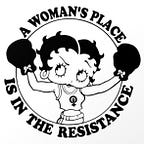“The Regime” mocks dictators and their larger-than-life antics
A flag in the wind, one that, every time we look, is more torn. A playful music, composed by the great Alexandre Desplat, accompanies the image. By the end of the opening credits, a new flag substitutes the old one and the regime is renewed. Lots of Dutch angles, especially in the first episodes, create a sensation of discomfort. In the shape, all the elements of “The Regime” come together to tell the story, that could be real, of a dictator from a small country who thinks she’s the best — a reality that hits closer than ever.
A country in Middle Europe, where everybody magically speaks English, is governed by the stern Chancellor Elena Vernham (Kate Winslet). The current trouble she’s facing? Mold in the palace, a place that looks like a mix of the White House and Versailles. To fight the mold she summons Corporal Herbert Zubak (Matthias Schoenaerts) from Site Five, and makes him responsible for a little tool that measures humidity in the rooms.
Seven years before, in an election that was “clean”, Elena won over the old chancellor, who had “neomarxist” ideas. She is advised by Zubak to cut ties with the West, the United States in particular. Elena and Zubak became close because they started dreaming with each other, and she became even more inclined to believe in him when research finds out that he shares chromosomes with the mythical Foundling, the great founder of the country. Advised by him, Elena anexes the Faban Corridor, a mountainous piece of land neighboring her country.
But it’s not Zubak the only man who can “reduce her to a pathetic, crumbling” thing: the one who can do this is Elena’s father. But there is one setback: he’s dead. This, of course, doesn’t prevent her from talking to the corpse in a mausoleum or throwing a birthday party for him.
The two other men around Elena are her husband Nicky (Guillaume Gallienne), a poetry enthusiast, and the boy Oskar (Louie Mynett), who Elena raises as her own but is the biological child of the helper Agnes (Andrea Riseborough). But this isn’t an example of the patriarchy: it’s Elena who commands in the end of the day.
Kate Winslet tells that it was a joy, and at the same time a challenge, to play Elena. She worked with great effort, by studying how trauma can affect a person’s life, to build a character that could be believable, in a way between the funny and the odious. She got interested in the role, that she said was unlike anything she had played before, and in the opportunity to add a feminine touch to a super authority that is so often linked to males.
HBO itself marketed “The Regime” as a mix of the series Succession, Veep, Industry and The White Lotus. The creators of the show and Kate Winslet herself declared that they didn’t draw inspiration from any current leader, but were inspired by a compilation of personalities, to write the screenplay and shape the character Elena. This, however, can be debated. It’s impossible not to remember dictators, from the past and present, and the many absurdities that happened during their reign, from the elimination of the opposition to curious manias of leaders who think of themselves as above everything and everybody. This way, the satire in the miniseries is more pungent, and Winslet’s interpretation, that received deserved praise, is the highest point of the miniseries.
